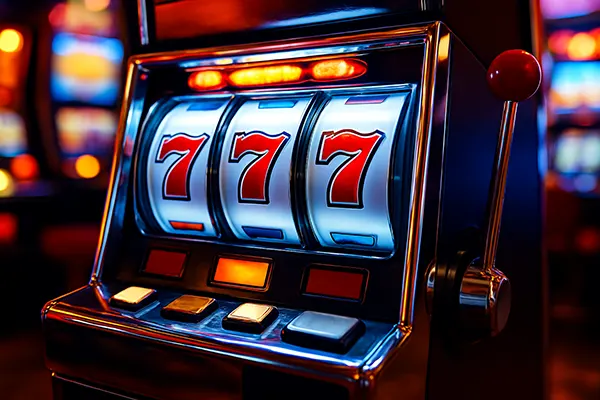How to Identify Manipulative Online Casino Advertising: Blacklisted Tactics in 2025

In 2025, the sophistication of online casino advertising has reached a new peak. Operators now use finely tuned behavioural triggers to encourage users to act quickly, spend more money, or trust services without properly verifying their legitimacy. To protect yourself, it’s essential to understand which advertising techniques are considered manipulative and why they are being blacklisted across consumer protection discussions this year.
Psychological Triggers That Force Action
One of the most common methods online casinos use is urgency messaging. This includes countdown timers, phrases such as “only a few spots left,” and dynamic offers that seemingly expire within minutes. These aren’t just marketing tricks — they’re designed to bypass rational thinking and drive impulsive decisions. In most cases, these offers are not limited at all and appear the same to every visitor, regardless of when they access the site.
Psychological manipulation is often reinforced visually. Flashing banners, bright colours (especially red or green), and animated CTAs are crafted to create a false sense of scarcity or exclusive access. These tactics exploit the user’s emotional responses instead of providing clear, fact-based information to support an informed decision.
While urgency can sometimes be justified in limited offers, many operators exaggerate or outright fabricate limitations. This has led consumer watchdogs and gambling commissions to highlight “false scarcity” as a major red flag in 2025’s review of digital casino marketing practices.
Fake Testimonials and Invented Success Stories
Another manipulation tactic becoming more common in 2025 is the use of fabricated user reviews. These are often accompanied by AI-generated profile photos, first names, and glowing commentary about how the person “won big” after signing up. Some even include detailed fake timelines of financial transformation, giving the illusion of authenticity.
These stories are often used to promote “miracle” bonuses or show a fake sense of community around the casino. Phrases like “everyone’s winning here” or “I finally paid off my debts thanks to this game” are carefully chosen to appeal to users’ hopes or financial stress. However, the reality behind these testimonials is rarely disclosed.
Reputable gambling operators do not rely on fictional marketing. Instead, they prioritise transparency and clearly state the risks involved in gambling. If an operator is heavily pushing emotional or unverified user reviews, it’s a strong signal that manipulation is involved.
Email and Push Ads That Mimic Personalisation
After registration, players may begin to receive aggressive email or push notification campaigns. These often claim to be “personal offers” but are generated from generic templates. They usually promise a free bonus or urgent rewards that “expire soon,” and pressure the recipient into immediate action, like making a deposit.
In 2025, these messages are increasingly powered by behavioural automation tools. The content dynamically changes based on user activity — for instance, if someone viewed a specific slot game, they may receive a “limited free spin” offer for that same game within hours. However, the tailoring is superficial, and these offers are typically sent to thousands of users at once.
It’s important to treat such notifications with scepticism. True personalisation involves account-specific deals or support, not mass-mailed pressure messages disguised as exclusive attention. Responsible operators will provide opt-out options and never mislead users with mass-customised offers.
Website Designs That Conceal Terms
Manipulative design practices are a growing concern in 2025. Many casino websites now deliberately hide or minimise visibility of important terms and conditions. For example, the wagering requirements or country restrictions may only be accessible through footnotes, modal windows, or hard-to-find subpages.
Some operators go further by including fixed-timer pop-ups that block content until the user responds. These often contain flashy call-to-actions for bonus claiming and effectively obstruct access to the site’s more balanced information. It’s a tactic designed to overwhelm, not inform.
Operators acting in good faith maintain clear layouts, accessible navigation, and transparent bonus information. If you find yourself digging through layers of pages to find critical rules — or worse, they’re missing entirely — it’s a strong indicator of manipulative intent.

Deceptive Bonuses with Hidden Conditions
2025 has seen a rise in so-called “exclusive” or “zero-deposit” bonuses that aren’t truly what they appear. These offers often include fine print stating that a real-money deposit is required to unlock winnings, or that playthrough requirements are extremely high (sometimes x60 or more). These terms are usually buried far below the prominent marketing text.
Moreover, many bonuses come with maximum withdrawal caps (e.g., €20–€50), rendering any large win effectively void if the player hasn’t made a qualifying deposit. Such practices create the illusion of free value, but in reality, trap users in complex rules they didn’t clearly consent to.
It’s crucial to always read the full terms before activating any bonus. Trusted operators will publish all requirements clearly and avoid exaggerating the potential benefit. If a bonus seems too good to be true — especially without mentioning restrictions upfront — it likely is.
Use of Fake Certification and Approval Logos
One of the most alarming tactics in 2025 is the growing use of counterfeit certification logos. Some websites falsely display logos of the UK Gambling Commission, MGA, or “auditing agencies” that either don’t exist or have no regulatory power. These fake endorsements are designed to create a false sense of trust and legal legitimacy.
Sometimes, clicking on these logos redirects users to placeholder pages or even unrelated websites. In other cases, the licence number listed doesn’t match any registered operator in the regulator’s official database. Players should never assume that a logo alone guarantees legitimacy.
The safest way to verify a licence is to check directly on the regulator’s website (such as gamblingcommission.gov.uk or mga.org.mt) by entering the casino’s name or licence number. If that information is not publicly listed or cannot be matched — consider the site unsafe.





